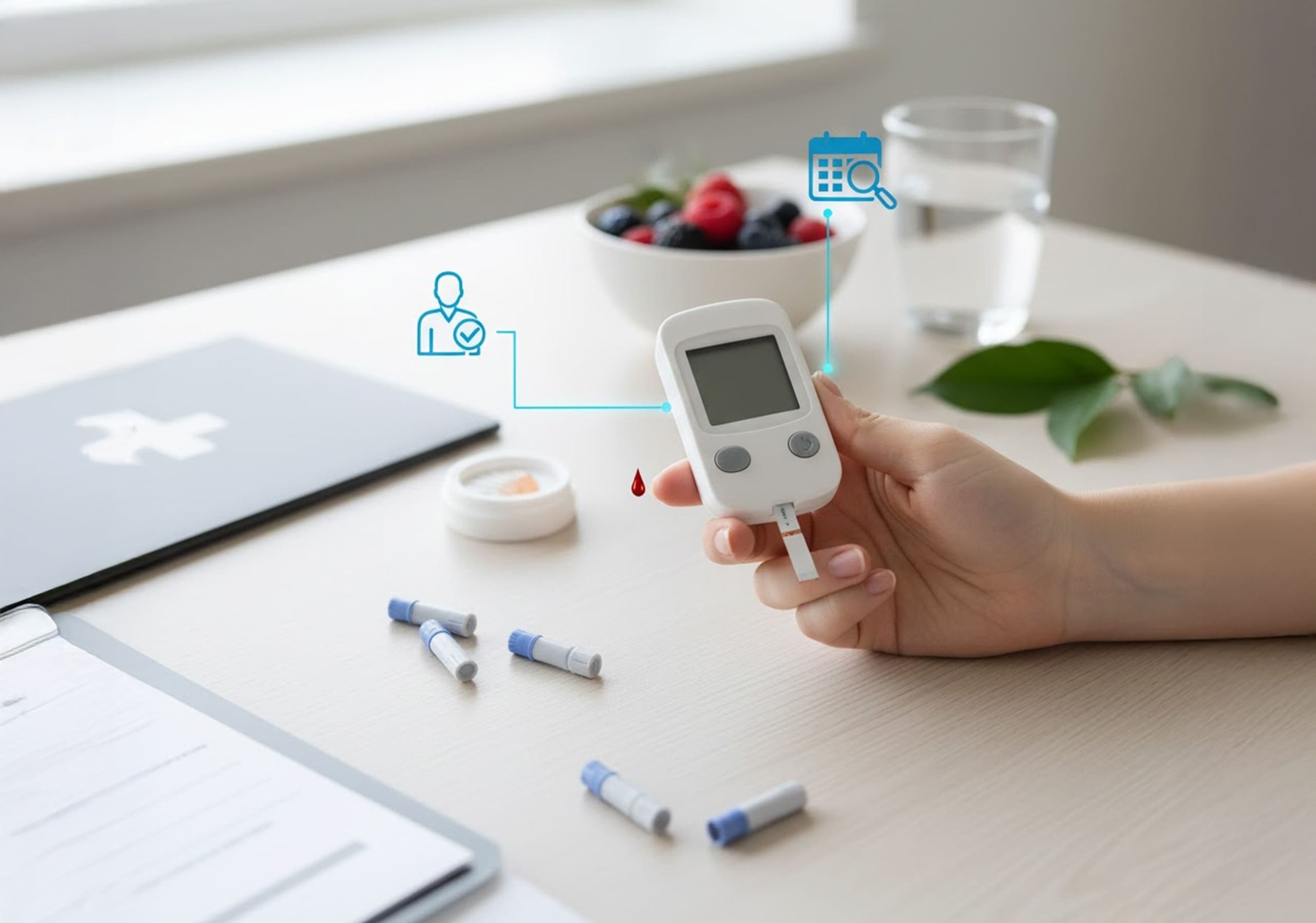Diabetes is a global health concern that affects millions of people worldwide. Early detection through diabetes screening tests can help manage the disease effectively. This comprehensive guide explains the different types of diabetes screening tests, including the blood glucose test, the oral glucose tolerance test, and the A1C test — and why early detection matters.
Understanding Diabetes
Diabetes is a chronic disease that affects how your body processes glucose — the main source of energy for your cells.
In a healthy body, insulin helps move sugar from the bloodstream into cells to be used for energy. If you have diabetes, your body either doesn’t produce enough insulin or can’t use it effectively. As a result, glucose builds up in your blood, leading to high blood sugar levels that can cause long-term complications such as nerve damage, heart disease, and kidney failure.
Importance of Diabetes Screening
Regular diabetes screening tests are crucial because diabetes can develop quietly — often without noticeable symptoms. Early detection allows for timely treatment and lifestyle changes that can prevent or delay serious complications.
Screening helps:
- Detect prediabetes before it becomes diabetes
- Monitor risk in high-risk individuals
- Prevent long-term damage to the heart, kidneys, eyes, and nerves
Early action means better outcomes and a higher quality of life.
Types of Diabetes Screening Tests
There are three main types of diabetes screening tests: the blood glucose test, the oral glucose tolerance test, and the A1C test. Each provides unique insights into your blood sugar levels and overall metabolic health.
Blood Glucose Test
The blood glucose test (also known as the fasting plasma glucose test) measures the amount of sugar in your blood after you’ve fasted for at least eight hours.
Typical results:
- Normal: Below 100 mg/dL
- Prediabetes: 100–125 mg/dL
- Diabetes: 126 mg/dL or higher (confirmed on a second test)
This is one of the most common and straightforward screening methods for diabetes.
Oral Glucose Tolerance Test
The oral glucose tolerance test (OGTT) measures how your body processes sugar over time.
How it works:
- You fast overnight.
- Your fasting blood sugar is tested.
- You drink a sweet glucose solution.
- Blood samples are taken at regular intervals over two hours.
Typical results:
- Normal: Less than 140 mg/dL after two hours
- Prediabetes: 140–199 mg/dL
- Diabetes: 200 mg/dL or higher
This test is especially useful for diagnosing gestational diabetes in pregnant women.
A1C Test
The A1C test, also known as the HbA1c or glycated hemoglobin test, provides a picture of your average blood sugar levels over the past two to three months. Unlike other tests, it doesn’t require fasting. It’s often used both to diagnose diabetes and to monitor ongoing blood sugar control.
Typical results:
- Normal: Below 5.7%
- Prediabetes: 5.7–6.4%
- Diabetes: 6.5% or higher
Because it reflects long-term blood sugar control, the A1C test is a cornerstone in both diagnosis and management.
Who Should Get Screened for Diabetes?
According to the American Diabetes Association (ADA), adults without symptoms should start getting screened for diabetes at age 45. However, if you have certain risk factors, testing should start earlier. These include:
- Family history of diabetes
- Being overweight or obese
- Sedentary lifestyle
- High blood pressure or high cholesterol
- History of gestational diabetes or polycystic ovary syndrome (PCOS)
- Belonging to high-risk ethnic groups (African, Hispanic, Asian, or Native American)
If your results are normal, repeat testing every three years. People at higher risk should consider annual screening.
Frequently Asked Questions (FAQ)
Q: How often should I get a diabetes screening test?
A: It depends on your risk level and past test results. Most adults should be screened every three years, while those at higher risk may need yearly tests.
Q: Can these tests diagnose both type 1 and type 2 diabetes?
A: Yes, they can detect both. However, further evaluation may be needed to distinguish between type 1 and type 2 diabetes.
Q: Do I need to fast for all diabetes tests?
A: No. Only the fasting blood glucose test and the oral glucose tolerance test require fasting. The A1C test does not.
Q: What should I do if my test results are high?
A: If your results indicate prediabetes or diabetes, consult your healthcare provider immediately. Early lifestyle changes — like improving your diet, increasing activity, and managing weight — can make a significant difference.
Conclusion
Early detection of diabetes through regular screening tests can prevent complications and dramatically improve quality of life. If you have risk factors or are over 45, schedule a screening test today.
Remember: prevention starts with awareness. Getting tested could be one of the most important steps you take for your long-term health.





